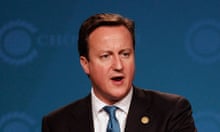Total earnings for directors of FTSE 100 companies increased by 49% last year, far outpacing pay claims for workers outside the boardroom.
A FTSE 100 executive typically received an average of £2.7m in 2010, according to the research by Incomes Data Services, which analysed payouts of salaries, bonuses and long-term incentive plans the last financial year.
For chief executives, the average total pay deal was £3.8m – an average rise of 43.5% – while IDS calculated that finance directors received an average increase of 34.1%,to take their average to £2m, while all other directors received an average increase of 66.5%, to take their average to £2.2m.
The directors enjoyed such large increases in the total take-home pay as bonus schemes compensated for the average 3.2% rise in base salaries that they were awarded last year. Inflation is running at 5.2% while data from IDS shows that pay deals in the private sector are running at 2.6%.
Steve Tatton, editor of the IDS report, said: "At a time when employees are experiencing real wage cuts and risk losing their livelihoods, without further explanation it may be difficult for FTSE 100 companies to justify the significant increase in earnings awarded to their directors.
"The pay gap between the boardroom and the shop floor does not yet show any signs of closing."
The average bonus payment for FTSE 100 directors stood at £906,044 – a rise of 23% on last year. While the IDS data showed rising pay in Britain's boardrooms, bonuses for City workers this year were forecast to fall 28% to £4.2bn – only just above levels paid out in 2002-03 and the lowest since the banking crisis.
The Centre for Economics and Business Research thinktank has concluded that bank bonuses will be down because of the turmoil in the eurozone, which has resulted in banks reporting lower profits. The CEBR points out that bonuses are also lower because some banks have been paying out higher base salaries and lower bonuses to meet regulatory requirements.
Douglas McWilliams, the CEBR's chief executive, said: "Although I wouldn't want to be a Porsche salesman now, with the fat cats having to tighten their belts, the real losers from falling bonus payments are the Treasury and the taxpayer."







Comments (…)
Sign in or create your Guardian account to join the discussion